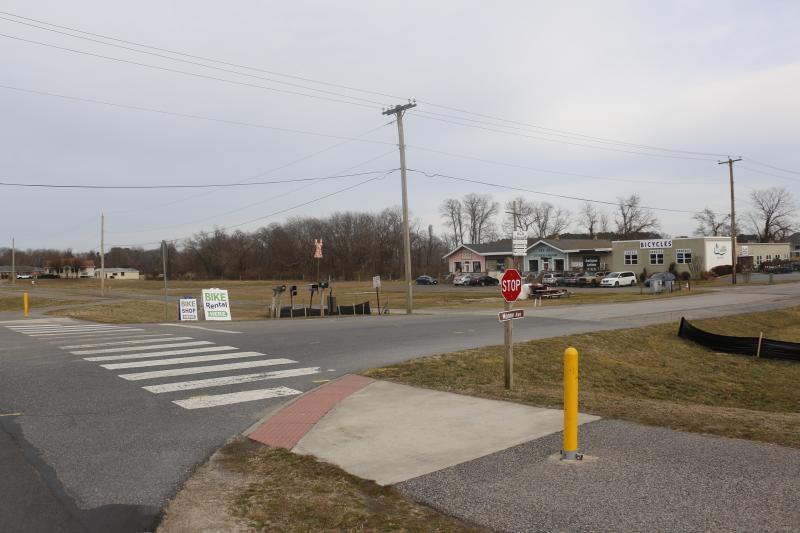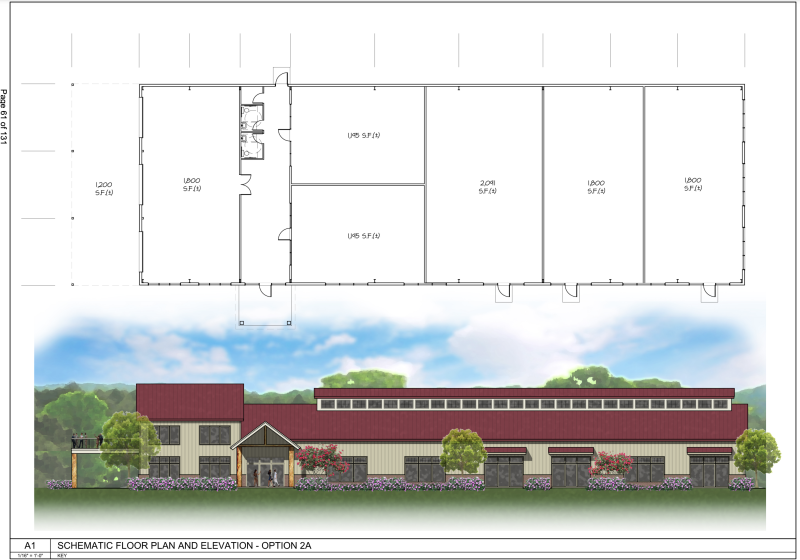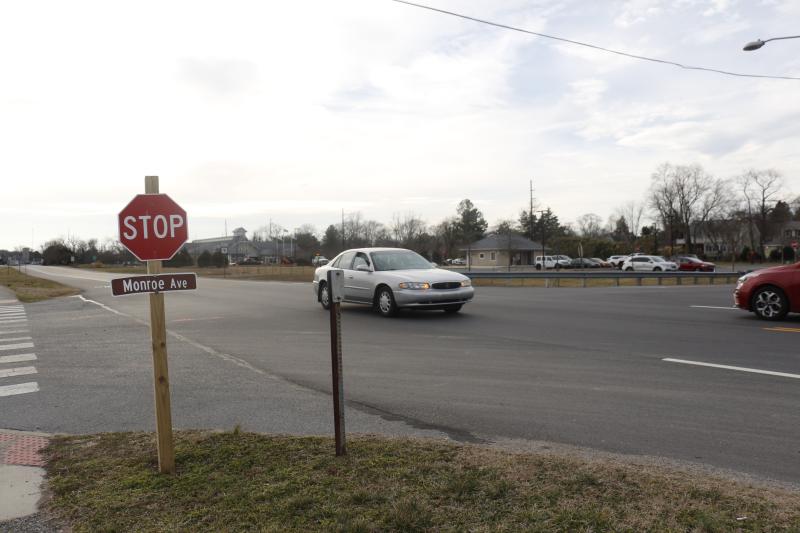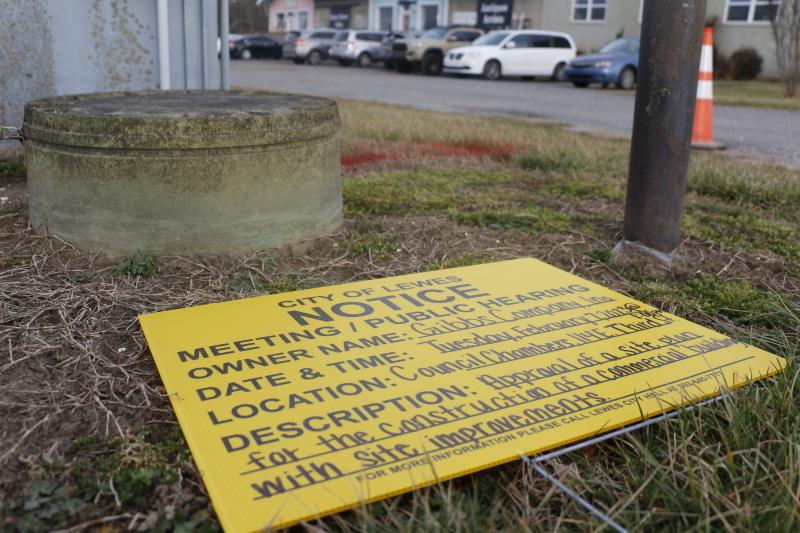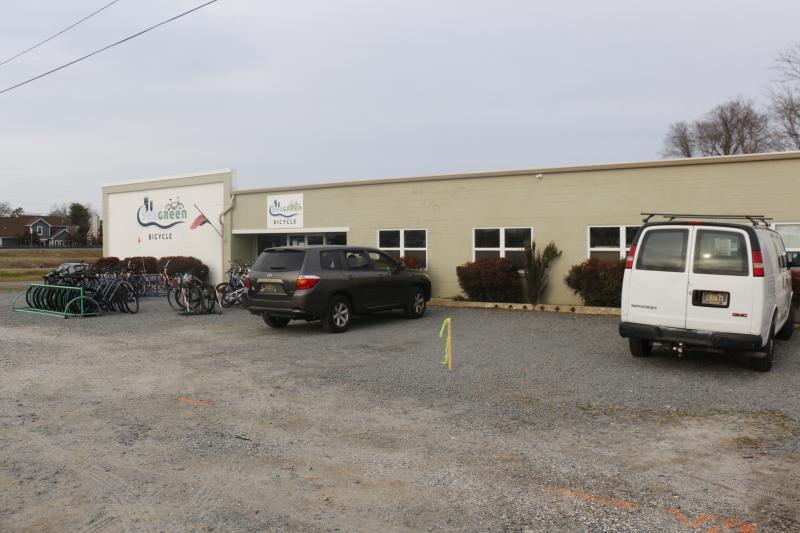Commercial building planned along Freeman Highway in Lewes
A 15,000-square-foot commercial building has been proposed for the corner of Monroe Avenue and Freeman Highway in Lewes.
The plans presented by Robert Gibbs of Gibbs Company received a positive recommendation from the Lewes Joint Site Development Ad Hoc Review Committee Feb. 7. An existing 8,500-square-foot building with tenants Seagreen Bicycle, Old Screen Door and Tom Tom will remain.
The new building would feature a two-story restaurant with an upper deck overlooking Whites Pond and a patio underneath. Gibbs offered four ways the restaurant could be designed; each version used the same footprint, but with different interior layouts or exterior appearances. Possible number of units varies from six to nine, which may be determined by demand, Gibbs said. One iteration replicates the look of the Lewes Public Library across Freeman Highway.
William Landon, a member of the joint site committee, praised the attempts to replicate the library, but he preferred a classic brick look offered up in another. Gibbs said he hasn’t committed to a design.
Chip Davis, a member of the bike and pedestrian advisory committee, emphasized the need for a crosswalk at the intersection of Freeman Highway and Monroe Avenue. Running parallel to the highway are the Lewes-Georgetown Trail and the Junction & Breakwater Trail. Although bicyclists and pedestrians often cross Freeman Highway at Monroe Avenue to go to the trailhead at the library or farther into town, no crosswalk has been installed.
“I want a presence for bicycles to be able to come in, stop by, get something quickly and move along, or spend an hour at lunch or in the late afternoon,” Gibbs said.
While building plans are undecided, the plan calls for more than 100 spaces for bicycles.
Gibbs said he believes the location could help alleviate future traffic concerns by providing amenities to communities and residents in the area.
Under construction on a neighboring property is Olde Town at Whites Pond, a residential community approved in 2021 that will have 85 single-family homes.
When Olde Town is complete, Monroe Avenue will connect with Battlemixer Drive in the Showfield community. Mayor Andrew Williams said Showfield residents are requesting permission to install a gate between their community and Olde Town. Officials said a traffic study concluded that without a light installed at the intersection of Monroe Avenue and Freeman Highway, wait times could be as long as 14 minutes.
Regarding site lighting for this project, committee member Bob Heffernan said he thinks city officials should have talked about lighting at the library before final approval. He said people complain regularly about light pollution, and sometimes the library lights don’t go off even at 10 or 11 p.m.
“The City of Lewes needs a lighting ordinance. It’s a serious problem throughout the community,” said committee member Randy Burton. “Some areas of the town, you can walk on the street and it’s daylight at midnight.”
By code, Gibbs’ project requires 114 parking spaces; the plan calls for 119, including six handicap spaces. Three loading spaces are required on the site, but the committee favors reducing the number to two.
One request not recommended to mayor and city council is the reduction of a 30-foot buffer from the adjacent Cunningham property. John Horner, an attorney representing JTJ DE Investments LLC, owner of the Cunningham property, wrote a letter in support of granting the waiver request. Horner said his client’s proposed open space would increase the buffer between the two sites well above the 30-foot requirement. Gibbs and Horner said they made a gentleman’s agreement.
Gibbs can still request the waiver from mayor and city council, but the 3-2 down vote from the committee means a recommendation will not be included.
The committee unanimously voted to recommend approval of the project with conditions. Those conditions include using pervious material where possible, limiting lighting to business hours, consideration of a historic design, inclusion of sheltered bicycle parking and consideration of electric vehicle chargers.
The next step is for mayor and city council to schedule a public hearing.
Aaron Mushrush joined the sports team in Summer 2023 to help cover the emerging youth athletics scene in the Cape Region. After lettering in soccer and lacrosse at Sussex Tech, he played lacrosse at Division III Eastern University in St. David's, PA. Aaron coached lacrosse at Sussex Tech in 2009 and 2011. Post-collegiately, Mush played in the Eastern Shore Summer Lacrosse League for Blue Bird Tavern and Saltwater Lacrosse. He competed in several tournaments for the Shamrocks Lacrosse Club, which blossomed into the Maryland Lacrosse League (MDLL). Aaron interned at the Coastal Point before becoming assistant director at WMDT-TV 47 ABC in 2017 and eventually assignment editor in 2018.














